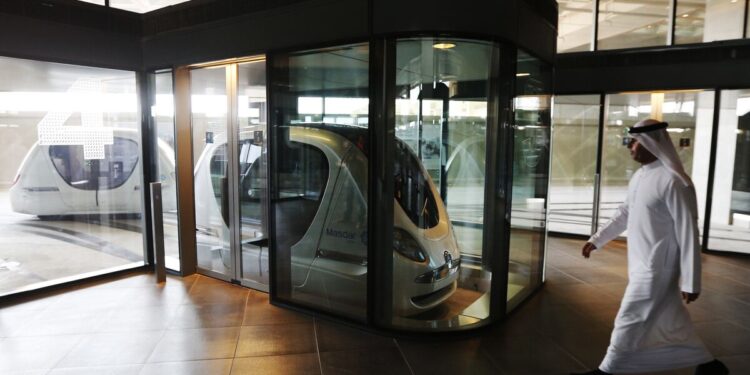Agencies-Gaza post
China NWTN to build electric vehicle facility in Abu Dhabi
An Abu Dhabi port company announced Tuesday that a new electric vehicle manufacturing plant will soon arrive in the Emirati city.
AD Ports Group’s Khalifa Industrial Zone Abu Dhabi (KIZAD) has signed a lease agreement with Chinese electric vehicle manufacturer NWTN. The two entities will establish an electric vehicle assembly facility in Abu Dhabi, which will be the first of its kind in the city, KIZAD said in a press release.
“NWTN’s partnership with AD Ports Group’s KIZAD forms a cornerstone of our broader global growth strategy, enabling us to efficiently serve a wider range of consumers both in the Middle East and in the broader markets of North Africa and Europe. ‘Europe,’ NWTN President and CEO Alan Wu said, according to the statement.
Because matter: The deal is the latest example of the UAE’s push towards green technology. On the electric car front, Dubai signed an agreement in July to test electric public buses. Various state and private entities in the UAE have also announced hydrogen, ammonia, wind and solar energy projects this year. Some Emirati companies are also experimenting with waste-to-energy and carbon capture initiatives.
The NWTN agreement is in line with the UAE’s goals of having zero net emissions by 2050, according to the KIZAD statement. About a third of the Emirati economy is currently based on oil and gas.
The agreement with NWTN also demonstrates China’s growing penetration into the economies of the Gulf and the Middle East. China is currently focusing on economic and energy partnerships with the region, economist Howard J. Shatz wrote for Al-Monitor PRO in June.
Relatively, NWTN recently moved its headquarters from the People’s Republic to Dubai. In June, Abu Dhabi signed an industrial cooperation agreement with the Chinese province of Shandong.
Elsewhere in the region, Saudi oil giant Aramco signed a cooperation agreement with a Chinese oil company in August focusing on carbon capture and hydrogen energy. The same month, Egypt signed a training agreement with leading Chinese technology company Huawei.
The Chinese government exercises considerable amount of control compared to private companies.
Learn more: Electric vehicles attract consumers because they don’t emit carbon dioxide while driving, which has environmental benefits, not to mention saving on gas money. However, electric vehicles themselves can be harmful to the environment due to the energy and rare earth minerals needed to produce them, among other issues.

















